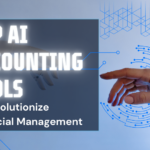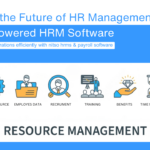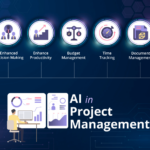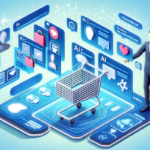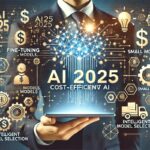Introduction
Artificial Intelligence (AI) is revolutionizing enterprise software, enabling businesses to automate processes, enhance decision-making, and improve customer experiences. Enterprise software AI is now a key driver of digital transformation, helping companies stay competitive in an increasingly tech-driven world. This article explores the latest advancements in enterprise software AI, its applications, and how businesses can leverage it for success.

The Role of AI in Enterprise Software
AI-powered enterprise software is reshaping industries by offering intelligent automation, predictive analytics, and enhanced efficiency. Key areas where enterprise software AI is making a significant impact include:
- Automated Workflow Management: AI automates repetitive tasks, reducing human intervention and improving productivity.
- Data-Driven Decision Making: AI analyzes vast amounts of data, providing actionable insights for better strategic planning.
- Enhanced Security: AI-driven cybersecurity solutions detect and prevent threats in real time.
- Improved Customer Experience: AI-powered chatbots and virtual assistants provide instant support, enhancing customer satisfaction.
Top Applications of Enterprise Software AI
1. AI-Powered CRM Software
Customer Relationship Management (CRM) software is benefiting immensely from AI. Platforms like Salesforce Einstein and HubSpot leverage AI to predict customer behavior, personalize interactions, and automate marketing campaigns. Enterprise software AI in CRM helps businesses optimize customer engagement and drive sales growth.
2. AI in Enterprise Resource Planning (ERP)
ERP systems such as SAP S/4HANA and Oracle Cloud ERP integrate AI for better financial forecasting, inventory management, and operational efficiency. AI enhances ERP systems by:
- Automating financial reconciliations
- Detecting anomalies in supply chains
- Providing real-time business intelligence
3. AI in Human Resource Management (HRM)
HR software like Workday and BambooHR use AI to streamline recruitment, employee performance tracking, and workforce analytics. Enterprise software AI in HRM helps businesses:
- Automate resume screening and candidate matching
- Predict employee attrition rates
- Enhance training programs through AI-driven learning modules
4. AI for Cybersecurity and Threat Detection
With cyber threats on the rise, AI-powered cybersecurity software like IBM Watson Security and Darktrace provide real-time threat detection and prevention. AI-driven enterprise security solutions help businesses:
- Identify suspicious network activity
- Prevent data breaches with automated threat response
- Enhance endpoint security with AI-based anomaly detection
5. AI in Supply Chain Management
AI-powered supply chain software, such as Blue Yonder and Kinaxis, optimizes logistics, demand forecasting, and supplier management. Enterprise software AI in supply chains enhances:
- Real-time tracking of shipments
- Automated procurement processes
- Risk assessment for supply chain disruptions
6. AI in Finance and Accounting
AI-driven financial software like QuickBooks AI and Xero AI automate bookkeeping, fraud detection, and financial planning. Key benefits include:
- AI-powered predictive budgeting
- Automated invoice processing
- Fraud detection through machine learning algorithms
7. AI for IT Operations (AIOps)
AI in IT operations, known as AIOps, is transforming how businesses manage infrastructure and software performance. Platforms like Splunk and Dynatrace leverage AI for:
- Automated IT troubleshooting
- Predictive maintenance of IT systems
- Enhancing system performance through real-time analytics
Benefits of Enterprise Software AI
The adoption of enterprise software AI brings numerous advantages to businesses:
- Increased Efficiency: AI automates routine tasks, allowing employees to focus on higher-value work.
- Cost Savings: AI-driven automation reduces operational costs and improves resource allocation.
- Enhanced Accuracy: AI minimizes human errors in data analysis, financial reporting, and decision-making.
- Scalability: AI-powered solutions can scale with business growth, adapting to increasing workloads.
- Competitive Advantage: Companies that integrate AI into their enterprise software gain a strategic edge over competitors.
Challenges in Implementing Enterprise Software AI
While enterprise software AI offers numerous benefits, businesses may face challenges in implementation:
- High Initial Costs: AI adoption requires significant investment in technology and infrastructure.
- Integration Issues: Businesses may struggle to integrate AI with existing enterprise systems.
- Data Privacy Concerns: AI relies on large datasets, raising concerns about data security and compliance.
- Skill Gaps: Organizations need skilled professionals to manage and optimize AI-driven enterprise software.
The Future of Enterprise Software AI
The future of enterprise software AI looks promising with advancements in:
- Generative AI: AI models like ChatGPT and Google Bard will enhance business communication, content creation, and automation.
- AI-Driven Personalization: AI will provide more personalized customer experiences through adaptive learning algorithms.
- Autonomous Enterprise Systems: Self-learning enterprise software will make real-time decisions without human intervention.
- AI in Hybrid Work Models: AI will support remote and hybrid work environments with enhanced collaboration and productivity tools.
Conclusion
As we enter 2025, enterprise software AI is set to redefine business operations across industries. From CRM and ERP to cybersecurity and finance, AI-powered solutions drive efficiency, innovation, and growth. Businesses that embrace AI-driven enterprise software will be better positioned to navigate the evolving digital landscape and maintain a competitive edge. The integration of enterprise software AI is no longer an option but a necessity for future-ready organizations.
